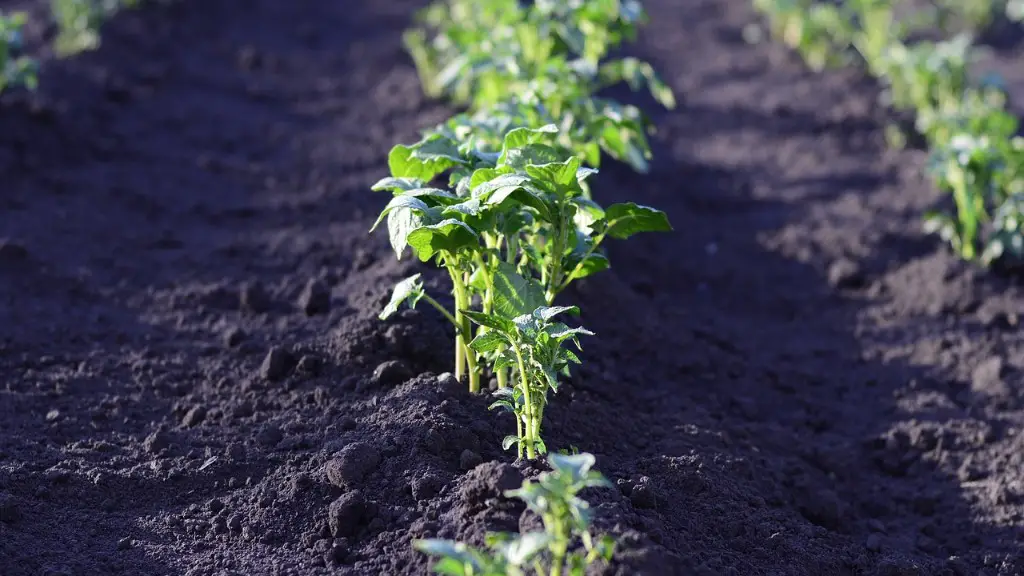Successful agriculture requires access to land, water, and sunlight. Farmers must also have the knowledge and skills to effectively cultivate crops. Lastly, agricultural production must be able to meet the demands of the market.
There is no one-size-fits-all answer to this question, as the requirements for successful agriculture vary depending on the specific type of agriculture being practiced. However, in general, successful agriculture requires access to land, water, and other natural resources; a suitable climate; and sufficient labor and capital. Additionally, farmers must be able to produce crops or livestock that meet the demand of the market.
What is the most important thing needed for successful agriculture?
Good soil is essential for farming since it determines what can be grown and whether yields will be high or low. Without good soil, it would be difficult to grow anything.
Climate: The climate of an area affects the type of agriculture that can be successfully grown in that area. For example, crops that require a lot of water cannot be grown in areas that have little rainfall.
Soil type: The type of soil in an area affects what type of crops can be grown successfully. For example, crops that require a lot of nutrients will not do well in sandy soils.
Irrigation: Irrigation is necessary in many areas to provide the water that crops need to grow. Without irrigation, agriculture would not be possible in many areas of the world.
Technology: Technology is important in agriculture for many reasons. It can help farmers to be more efficient and to produce higher yields. It can also help to protect crops from pests and diseases.
Population density: The population density of an area affects agriculture in two ways. First, a high population density means that there is a larger market for agricultural products. Second, a high population density means that there is more competition for land, which can drive up the price of land.
What are 4 needed skills in agriculture
Agricultural workers are responsible for a variety of tasks, from planting and harvesting to operating machinery and caring for animals. To be successful in this field, workers must be physically strong and have excellent hand-eye coordination. They also need to be able to work well with others and have good listening skills.
Farmers must be knowledgeable about their crops in order to choose the right seeds for their soil and climate. They should also have experience in evaluating crop growth and predicting weather patterns. Those who work with livestock and dairy products should have a passion for working with animals and some knowledge of animal husbandry, breeding, and care.
How do I become a successful agriculturist?
There is no doubt that having a background in biology, commercial expertise, and machinery is essential for being an agriculturist. However, these hard skills are not the only skills necessary for success in the industry. Being able to effectively communicate with customers, understand and solve problems, and have a strong work ethic are also essential.
Agriculture is the act of producing food, clothing, and shelter through the cultivation of crops and animals. Agriculture has been the foundation of human civilization, and it continues to be an important part of our lives today. The three basic human needs that agriculture provides are food, clothing, and shelter. Agriculture is necessary to our survival and well-being, and we are grateful for the farmers and ranchers who work hard to provide us with these essential items.
What are the 5 five skills needed for the agriculture industry?
1) Adaptability: The ability to adapt to new situations and environments is crucial for professionals in agriculture. Agriculture is constantly evolving, and those who can adapt quickly will be more successful.
2) Interpersonal skills: The ability to communicate and work well with others is essential in agriculture. Whether you’re working with customers, suppliers, or colleagues, being able to build strong relationships is key.
3) Time management and organisation skills: Agriculture is a demanding industry, and those who can manage their time and resources effectively will be more successful. Being organised and efficient will help you get the most out of your work day.
4) Tech-savvy: Technology is playing an increasingly important role in agriculture. Those who are comfortable using technology and are up-to-date with the latest trends will be at an advantage.
Soil fertility plays a vital role in crop production. It is the ability of soil to support crop growth and is determined by its physical, chemical and biological attributes. All these factors are important in maintaining soil fertility and need to be managed properly to achieve optimum crop production.
What are 5 important of agriculture
Agriculture is the main source of food and fabrics for the world. Products like cotton, wool and leather come from agriculture. It also provides wood for construction and paper products. The methods of agriculture may vary from one place to another.
The distribution of agriculture is affected by many factors, including climate, soil type, land tenure, market, transport, capital, and technology.
What are the 4 main factors farmers must consider before making a farm?
If you’re looking to start a farm, there are a few key things you need to consider. First, you need to make sure you have the financial resources in place to get your farm up and running. Next, you need to choose a location that is ideal for farming conditions. Finally, you will need to assess the quality of the soil and water in the area to ensure that your crops will thrive. By taking all of these factors into consideration, you can be sure to set yourself up for success in owning your very own farm.
Agricultural practices involve many steps in order to be successful. Ploughing, sowing, adding nutrients, irrigation, protecting plants, harvesting, and storage are all important steps that must be taken into account. Without proper planning and execution, agricultural practices can quickly become unproductive.
What are 11 ways to improve agricultural productivity
There are a number of ways to improve farming productivity. One is to implement land reforms, which can help to improve production. Another way to improve productivity is to plant more densely, plant many crops, and raised beds. Additionally, smart water management and heat tolerant varieties can help to improve productivity. Finally, using nitrogen can also be beneficial.
Agriculture is the process of producing food, feed, fiber and other desired products by the cultivation of certain plants and the raising of domesticated animals. Agricultural practices include crop rotation, irrigation, fertilization, and pest control.
What are the basic factors on which agriculture survives?
Fertility of the soil and availability of water are two major factors affecting agricultural production. Plants absorb nutrients through the soil, and the climate affects the availability of water.
Farmers face many challenges, from climate change and soil erosion to biodiversity loss and changing consumer tastes. They need to invest in farm productivity and adopt new technologies to meet rising demand for more and better food.
Final Words
The most important requirement for successful agriculture is fertile land. Other requirements include a reliable water supply, fuel for farm machinery, and adequate roads and transportation for bringing in farm supplies and taking the crops to market. The availability of farm workers is also a key factor.
The requirements for successful agriculture are land, water, sunlight, and nutrients. Farmers must be able to control these factors to produce a crop. They must also have the knowledge and equipment to plant, grow, and harvest the crop.




